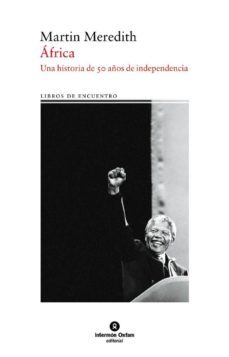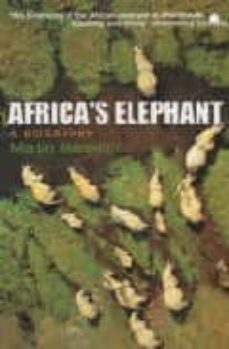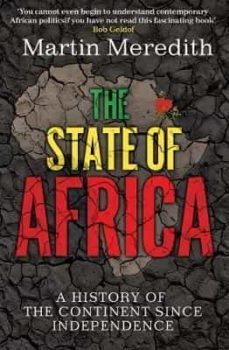Imprescindibles
Más vendidos Libros más leídos eBooks más leídos Todos los libros Todos los libros Autores destacados Series y sagas
Recomendados Libros recomendados Autores destacados Libros que inspiran Vidas con historia LGTBIQ+ English books
Ficción
Literatura Contemporánea Estudios literarios Clásicos Cuentos Poesía Teatro Libros de bolsillo Sagas literarias
Géneros literarios Novela romántica y erótica Novela negra Novela histórica Narrativa fantástica Novela de ciencia ficción Novela de terror Narrativa de humor Narrativa de viajes
No Ficción
Ciencias y tecnología Biología Ciencias Ciencias naturales Divulgación científica Informática Ingeniería Matemáticas Medicina Salud y dietas Formación Idiomas Estilo de vida Libros de Cocina Guías de viaje Narrativa de viajes Deportes Libros de Juegos Manualidades
Humanidades Autoayuda y espiritualidad Ciencias humanas Derecho Economía y Empresa Psicología y Pedagogía Filosofía Sociología Filología Biblioteconomía Estudios filológicos Estudios lingüísticos Estudios literarios Historia y crítica de la Literatura
Infantil
Juvenil
#Jóvenes lectores Narrativa juvenil Clásicos adaptados Libros Wattpad Libros Booktok Libros de influencers Libros de Youtubers Libros Spicy Juveniles Libros LGTBIQ+ Temas sociales Libros ciencia ficción Libros de acción y aventura Cómic y Manga Juvenil Cómic Juvenil Manga Shonen Manga Shojo Autores destacados Jennifer L. Armentrout Eloy Moreno Nerea Llanes Hannah Nicole Maehrer
Libros de fantasía Cozy Fantasy Dark academia Hadas y Fae Romantasy Royal Fantasy Urban Fantasy Vampiros y hombres lobo Otros Misterio y terror Cozy mistery Policiaca Spooky Terror Thriller y suspense Otros
Libros románticos y de amor Dark Romance Clean Romance Cowboy Romance Mafia y amor Romance dramatico Romcom Sport Romance Otros Clichés Enemies to Lovers Friends to Lovers Hermanastros Slow Burn Fake Dating Triángulo amoroso
Cómic y Manga
Novela gráfica Novela gráfica americana Novela gráfica europea Novela gráfica de otros países Personajes, series y sagas Series y sagas Star Wars Superhéroes Cómics DC Cómics Marvel Cómics otros superhéroes Cómics Valiant
Books in English
Books in English Fiction Non Fiction Comic Teen & Young Adult Main Authors Ken Follett Agatha Christie Stephen King Jane Austen Maggie O’Farrell On sale
Books in English for Young Adults Age 13+ Age 15+ Young Adult Authors Rebecca Yarros Sarah J. Maas Brandon Sanderson Ali Hazelwood Alice Oseman
Audiolibros
Literatura Contemporánea Narrativa fantástica Novela de ciencia ficción Novela de terror Novela histórica Novela negra Novela romántica y erótica Historia Historia universal
Humanidades Autoayuda y espiritualidad Ciencias humanas Economía y empresa Psicología y pedagogía Filosofía Infantil Audiolibros infantiles
Ciencia y tecnología Ciencias naturales Divulgación científica Medicina Salud y dietas Arte Cine Música Historia del arte
eBooks
Literatura Contemporánea Narrativa fantástica Novela de ciencia ficción Novela de terror Novela histórica Novela negra Novela romántica y erótica Juvenil Más de 13 años Más de 15 años Infantil eBooks infantiles
Humanidades Autoayuda y espiritualidad Ciencias humanas Economía y Empresa Psicología y Pedagogía Filosofía Historia Historia de España Historia Universal Arte Cine Música Historia del arte
Ciencia y tecnología Ciencias naturales Divulgación científica Medicina Salud y dietas Filología Estudios lingüísticos Estudios literarios Historia y crítica de la Literatura Estilo de vida Cocina Guías de viaje Ocio y deportes
MARTIN MEREDITH
Recibe novedades de MARTIN MEREDITH directamente en tu email
Filtros
Del 1 al 10 de 10
Jonathan Ball 9781868427741
The odyssey of the Reitz family passes like a thread through the tapestry of South African history in the nineteenth and early twentieth centuries. Originally Dutch-Afrikaner gentry from the Cape, the family moved to the frontier settlement of Bloemfontein and played a key role in the building of the Orange Free State. At the heart of this tale is the extraordinary career of Deneys Reitz, whose account of his adventures in the field during the Anglo-Boer War (1899-1902), published as Commando, became a classic of irregular warfare. Martin Meredith interweaves Reitzs experiences, taken from his unpublished notebooks, with the wider story of Britains brutal suppression of Boer resistance. Concise and readable, and featuring rare photographs from the family archives, Afrikaner Odyssey is a wide-ranging portrait of a distinguished Afrikaner family whose presence is still marked on the South African landscape.
Ver más
eBook
FUND. INTERMON OXFAM 9788484525950
La nueva África surgida de la independencia parecía destinada a brillar en el mundo. Líderes jóvenes y entusiastas se comprometían a fomentar la educación, la sanidad, el empleo y la tierra para todos. En un mundo en pleno boom económico, las nuevas naciones afrontaban el futuro rebosantes de recursos naturales. África parecía destinada a una era de progreso sin precedentes. ¿Cómo es posible que aquel sueño se truncara de forma tan brutal? ¿Por qué el continente africano se ha convertido hoy en sinónimo de pobreza, guerra, corrupción y confl ictos tribales? Meredith nos sumerge en los últimos cincuenta años de historia africana en busca de las raíces del problema, en un estudio tan apasionado como exhaustivo que, sin olvidar la responsabilidad de las potencias occidentales, también señala a las elites corruptas surgidas de la propia África. Y vemos el papel decisivo de las grandes personalidades, desde líderes comprometidos con su pueblo como Senghor en Senegal o Mandela en Sudáfrica hasta los controvertidos guías carismáticos como Nasser, Mugabe o Lumumba. Un libro imprescindible no sólo para comprender la realidad de África y su actual situación, sino también para plantear el urgente y necesario debate sobre su futuro.
Ver más
Tapa blanda
HODDER & STOUGHTON 9780340770825
Yet elephant history has been dominated by periods of brutality and persecution, used in gladiatorial combat, as weapons of war (most notably by Hannibal) and for their ivory, prized since ancient times as a symbol of wealth and status. As the ivory trade continued there are now only five countries with sizeable elephant populations, where a few hundred years ago there were forty-six before the European hunters arrived.|Acclaimed African expert Martin Meredith has written the first full biography of the elephant - wide-ranging, moving and never less than fascinating in his travels through the history and present of Nature s great masterpiece (John Donne).
Ver más
Tapa blanda
Jonathan Ball 9781868427192
Martin Meredith documents the remarkable life of Bram Fischer in his biography Fischers Choice. Fischer was born into an aristocratic Afrikaans family but became one of South Africas leading revolutionaries. Regarded in his youth as having a brilliant career ahead of him, he rebelled not only against the apartheid system but also against his own Afrikaner people. As a defence lawyer, Fischer managed to save Mandela from the death penalty demanded by state prosecutors for his sabotage activities. He played a remarkable role in the underground movement aimed at overthrowing the government. To the very last, even when all the other conspirators had been arrested or fled into exile, Fischer held out, sought for months by the security police. His single-handed efforts ended inevitably in failure. Sentenced to life imprisonment, he was cast into solitary confinement, the government continued to regard him as a potentially dangerous influence even when he was dying of cancer, refusing all appeals to release him until the last few weeks of his life. Set against the dramatic background of two massive historical struggles, one by the Afrikaans, the other by the Africans, Fischers life contains all the ingredients of a political thriller.
Ver más
eBook
SIMON & SCHUSTER UK 9781471196416
As a narrative of Africa's political trajectory since independence, this book is hard to beat... Elegantly written as well as unerringly accurate' Financial Times'Meredith has given a spectacularly clear view of the African political jungle' Spectator'You cannot even begin to understand contemporary African politics if you have not read this fascinating book' Bob GeldofAfrica is forever on our TV screens, but the bad-news stories (famine, genocide, corruption) massively outweigh the good (South Africa). Ever since the process of de-colonialisation began in the mid-1950s, and arguably before, the continent has appeared to be stuck in a process of irreversible decline. Constant war, improper use of natural resources and misappropriation of revenues and aid monies contribute to an impression of a continent beyond hope.How did we get here? What, if anything, is to be done? Fully revised and updated and weaving together the key stories and characters of the last sixty years into a stunningly compelling and coherent narrative, Martin Meredith has produced the definitive history of how European ideas of how to organise 10,000 different ethnic groups has led to what Tony Blair described as the 'scar on the conscience of the world'. Authoritative, provocative and consistently fascinating, this is the seminal book on one of the most important issues facing the West today.
Ver más
Tapa blanda
Del 1 al 10 de 10

































